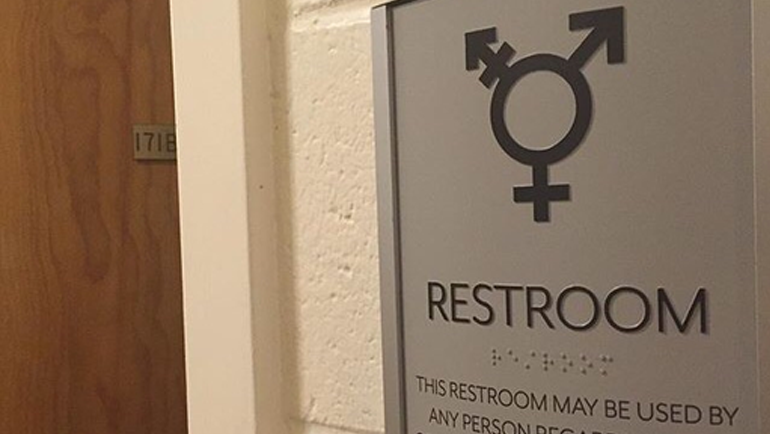Supreme Court to Hear Transgender Bathroom Case

The U.S. Supreme Court has agreed to consider its first case involving transgender rights. Gloucester County School Board v. G.G. involves whether a transgender Virginia teen who was born a girl, but identifies as a boy, should be able to use the boys’ bathroom at his school.
The Facts of the Case
In 2014, Gloucester High School agreed to allow G.G. to use the boys’ bathroom. However, after receiving complaints from students and parents, the Gloucester County School Board enacted a policy that would require students to use only the restrooms and locker rooms that correspond with the gender that they were assigned at birth.
G.G. filed suit in federal court, alleging the school board violated Title IX of the Education Amendments of 1972. The statute prohibits discrimination “on the basis of sex.” Meanwhile, its implementing regulation permits “separate toilet, locker rooms, and shower facilities on the basis of sex,” if the facilities are “comparable” for students of both sexes.
In an unpublished letter, the Department of Education’s Office of Civil Rights advised that Title IX’s prohibition of “sex” discrimination “include[s] gender identity.” The letter further opined that a funding recipient providing sex-separated facilities under the regulation “must generally treat transgender students consistent with their gender identity.”
The Fourth Circuit Court of Appeals relied on the letter when ruling in favor of G.G. It held that under the doctrine established in Auer v. Robbins the letter must be given “controlling” deference. On remand, the district court entered a preliminary injunction requiring the school board to allow G.G. to use the boys’ restrooms at school. The school board asked the U.S. Supreme Court to stay the ruling while it filed a petition for writ of certiorari, which the Court did.
The Issues Before Court
While transgender rights are controversial, the actual issues before the Court are very technical. The justices have agreed to consider the following two questions:
(1) Whether courts should extend deference to an unpublished agency letter that, among other things, does not carry the force of law and was adopted in the context of the very dispute in which deference is sought; and (2) whether, with or without deference to the agency, the Department of Education’s specific interpretation of Title IX and 34 C.F.R. § 106.33, which provides that a funding recipient providing sex-separated facilities must “generally treat transgender students consistent with their gender identity,” should be given effect.
So rather than getting to the heart of the case, the Supreme Court will determine how the Auer doctrine should be applied. Namely, the justices must decide whether the courts are required to give deference to the Department of Education’s interpretation of Title X.
Previous Articles
Supreme Court Rejects Mexico’s Suit Against U.S. Gun Manufacturers
by DONALD SCARINCI on July 8, 2025
In Smith & Wesson Brands v. Estados Unidos Mexicanos, 605 U.S. ____ (2025), the U.S. Supreme Co...
SCOTUS Sides With Employee in Reverse Discrimination Case
by DONALD SCARINCI on July 2, 2025
In Ames v. Ohio Department of Youth Services, 605 U.S. ____ (2025), the U.S. Supreme Court held tha...
Supreme Court Rejects Moment of Threat Doctrine in Deadly Force Case
by DONALD SCARINCI on June 30, 2025
In Barnes v. Felix, 605 U.S. ____ (2025), the U.S. Supreme Court rejected the Fifth Circuit Court o...
The Amendments
-
Amendment1
- Establishment ClauseFree Exercise Clause
- Freedom of Speech
- Freedoms of Press
- Freedom of Assembly, and Petitition
-
Amendment2
- The Right to Bear Arms
-
Amendment4
- Unreasonable Searches and Seizures
-
Amendment5
- Due Process
- Eminent Domain
- Rights of Criminal Defendants
Preamble to the Bill of Rights
Congress of the United States begun and held at the City of New-York, on Wednesday the fourth of March, one thousand seven hundred and eighty nine.
THE Conventions of a number of the States, having at the time of their adopting the Constitution, expressed a desire, in order to prevent misconstruction or abuse of its powers, that further declaratory and restrictive clauses should be added: And as extending the ground of public confidence in the Government, will best ensure the beneficent ends of its institution.





